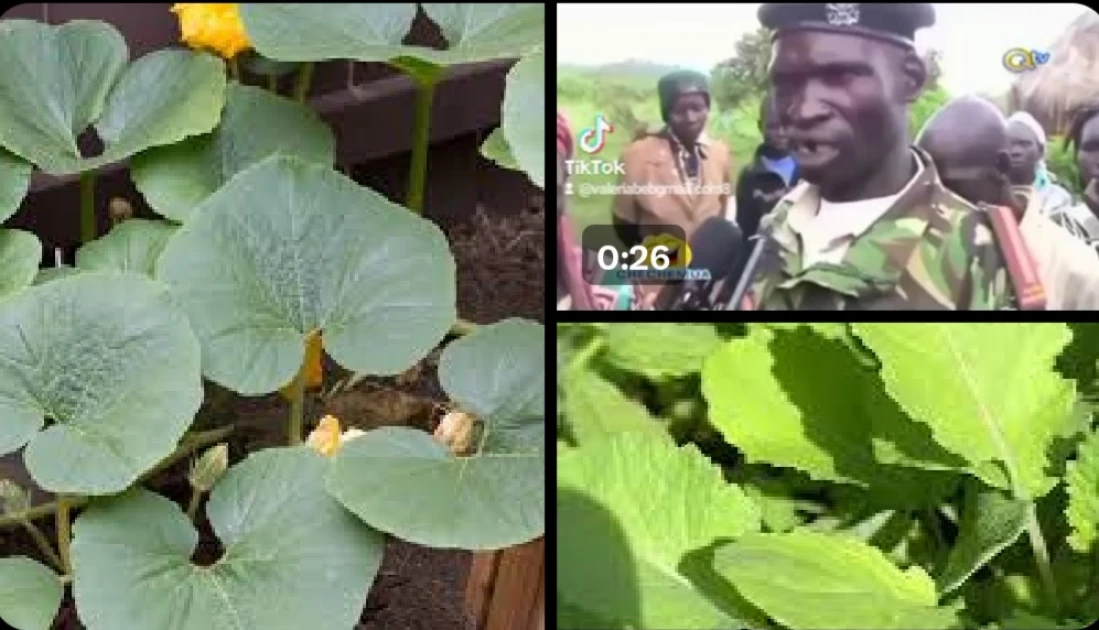Misheveve: Vegetable hilariously goes viral online years after chief's crime narration

Over the last couple of days, the word 'Misheveve' has rattled the cyberspace, quickly becoming the most viral utterance in the mouths of most Kenyans as they try to decipher its meaning - with others, already in the know, creating all manner of hilarious memes to explain it away.
'Misheveve', which, glanced at casually, appears like it could be yet another sophisticated English vocabulary, is actually a Luhya word which, seemingly out of nowhere, exploded online over the weekend, sparking a lengthy cultural conversation.
It all began after a local Chief in a village in Western Kenya narrated to a news crew the events leading to the atrocious acts committed by a disgruntled family member towards his parents.
Protus Wechuli Sifuna, a chief from Saboti in Trans Nzoia county, was recounting how a local attacked his father after he was not-so-impressed with what his mother had decided to prepare for dinner that night.
And that's when he dropped the magic word 'Misheveve', - saying it so cavalierly, so routinely, he probably did not know the amount of intense internet thunderstorms his word would cause years later.
In the viral video, Wechuli dramatically recounted the domestic dispute: "The young man asked, ''Mama umepika mboka gani leo?''
The mother responded, ''Nimeunda misheveve.''
He said, "Sitaki misheveve, nataka sarati.''
"Then the son began biting the old man's fingers, like he was chewing omena (sardines), while calculating how to subtract years from the old man’s life…"
Kenyans quickly picked up the word and started applying it in all their everyday conversations; some were genuinely curious on what the word meant while others would conjure up hilarious scenarios in which 'Misheveve' would come in handy.
Quickly, tutors sprang up and educated the world on what Misheveve actually meant - it means, pumpkin leaves. These leaves are normally harvested and used as vegetables across Western Kenya and other parts of Kenya and Africa.
Now, the conversation quickly shifted from what Misheveve meant to why the young man would be so disgusted by the idea of having to eat the dish.
Someone said, "I'm genuinely concerned over why Misheveve annoyed him so much. How can a stew be so terrible that you are willing to murder your father just to avoid eating it? Guys, honestly, is Misheveve that bad?"
Serious discourse aside, some Kenyans on X started replacing their everyday parlance with the new word in town, 'Misheveve'.
Phrases like, "Weka za Kabej", a popular Kenyan phrase asking for financial support, now shifted to "Weka za Misheveve".
Other jokes kept coming... "Leo nimepika Misheveve. Cool kid akifanya makosa kuingia huku atadhani naperform rituals."
And this one: "Unapikia dem yako ugali na misheveve alafu unashangaa mbona huoni dp yake kesho asubui.... "
Even the drunkards have something for themselves too, "Kabla ya kuingia Habanos foundation ni ya Misheveve."
As the word continues to gain currency, some enterprising artists have already done a song titled 'Misheveve'.
Amidst it all, someone else has a brilliant suggestion for Kenyan hoteliers. "This is the perfect time for Kenyan restaurant owners to introduce a special meal, call it Misheveve Fridays. Comes with a cold soda and kachumbari!"
Pumpkin leaves, sometimes called pumpkin greens, are edible, nutritious, and delicious. They're also popular all around the world.
They're rich in essential minerals, including potassium, which is required for muscle contractions, fluid balance, and chemical signaling between nerve cells.
They also help ensure the kidneys, digestive system, and heart are functioning properly.
Want to send us a story? SMS to 25170 or WhatsApp 0743570000 or Submit on Citizen Digital or email wananchi@royalmedia.co.ke
Comments
No comments yet.


Leave a Comment